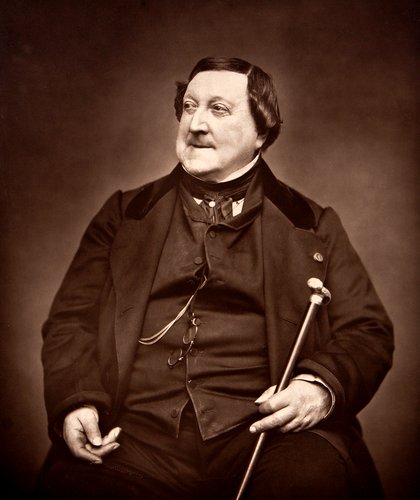
Gioachino Rossini
Rossini occupied an unrivalled position in the Italian musical world of his time, winning considerable success relatively early in his career. The son of a horn-player and a mother who made a career for herself in opera, as a boy he had direct experience of operatic performance, both in the orchestra pit and on stage. His operas from his first relative success in 1810 until 1823 were first performed in Italy. There followed a period of success in Paris, leading to his final opera, Guillaume Tell, staged in Paris in 1829. The revolution of 1830 prevented the fulfilment of French royal commissions for the theatre, but in his later life he continued to enjoy considerable esteem, both in Paris, where he spent much of his last years, and in his native Italy. There he spent the years from 1837 until 1855, before returning finally to France, where he died in 1868.
Operas
Of Rossini’s three dozen or so operas, Il Barbiere di Siviglia (The Barber of Seville) is probably the best known, a treatment of the first play of the Figaro trilogy by Beaumarchais on which Mozart had drawn thirty years before in Vienna. Other well known comic operas by Rossini include La Scala di Seta (The Silken Ladder), Il Signor Bruschino, L’Italiana in Algeri (The Italian Girl in Algiers), Il Turco in Italia (The Turk in Italy), La Cenerentola (Cinderella) and La Gazza ladra (The Thieving Magpie). More serious subjects were tackled in Otello, Semiramide, Mose in Egitto (Moses in Egypt) and the French Guillaume Tell (William Tell), based on the play by Schiller. The Overtures to many of these operas are a recurrent element in the repertoire of the concert-hall.